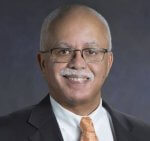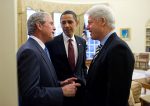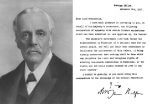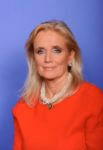Palestinians have little to expect from Israeli elections
Israeli journalist Tal Schneider was the guest in an online forum Thursday (Jan. 23, 2019) hosted by Americans for Peace Now. During the discussion, she observed that the Arab vote, despite uniting, might not be strong enough to refocus the country on addressing the occupation or on the Two-State Solution
By Ray Hanania
Americans for Peace is one of several Jewish American organizations leading the discussion about the upcoming Israeli elections, shouldering the growing burden of hope that there might be a non-violent, peaceful end to the Palestine-Israel conflict.
They often host a wide range of guests who offer insights into Israeli politics and the future of peace with the Palestinians. This past week, APN hosted veteran Israeli journalist Tal Schneider in a hour-long live online forum and she addressed many topics including the upcoming Israeli elections on APril 9, 2019.
Very candid and forthright, Schneider spoke about the challenges facing the Arab Israeli political parties noting that their strength as a unified group may be in jeopardy. But more disheartening is her view that while Europeans and other activists speak of the “Two-State Solution” and the future of the Palestinians in the West Bank, those are not issues that are being addressed in this election.
Schneider offered her assessment about the future of the Arab Joint List which was formed in 2015 after the Israeli right pushed through a law that increased the minimum vote required in order for a politics party to qualify to hold a seat in the Knesset. Called “the Threshold,” an Israeli party must receive a minimum of 3.25 percent of the vote.
She noted that the bill was pushed by Israeli Prime Minister Benjamin Netanyahu and former Israeli Defense Minister Avigdor Lieberman to dilute or weaken the voter power of the Arab citizens, many of whom support independence for Palestinians living under Israeli military occupation int he West Bank.
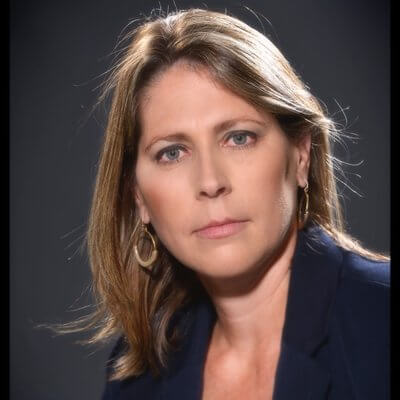
But Schneider noted the Netanyahu-Lieberman strategy did not work and actually backfired when it forced the Arab parties to join together to form one political party, the Arab Joint List. She noted the Arab parties didn’t want to unite, probably because each of the four major parties that made up the new Arab Joint List, had competing agendas and personalities vying for leadership positions in the Arab Israeli community.
“In the last election in 2015 they were forced to be joined together because of a new bill that raised the threshold … they didn’t want to unite but Lieberman and Netanyahu actually forced them to unite … and then it turned out the public, 20 percent of Israeli citizens who are their potential voters – not all of them are voting for them but they are potential voters, were rejoiced by the unification. And they actually went up from 11 seats went up to 13 touching on 14,” Schneider explained.
Last months, one of the leading members of that coalition, Ahmad Tibi, broke ranks jeopardizing their strength and actually threatening to reduce the number of seats they might win in the April 9 elections. Instead of 13 seats that they have today, which is very close to 14 if the Arab vote would vote a little stronger, they would fall to two groups of 6 seats each, or only a total of 12 seats.
“When they [Arab Joint List] split, the polls shows 6 and 6 which is 12. If Tibi were to rejoin with them after arguing with Hadash, Aymen Odeh … the unification may turn them back to 13 or maybe 14 … but I am not completely sure they are done with being united. I think it worked pretty good for them in the 2015 elections … the Arab voters liked the fact that they were together,” Schneider explained.

Schneider noted that Tibi is popular among many Israelis “who appreciate him” and his ability to engage in the Knesset debate in Hebrew, speaking all languages.
But she noted that it may not go further than simply “appreciating” him saying it still may not help the Arab Knesset members return to the days when they had an important role in the government.
“It doesn’t mean he [Tibi] can actually join the Zionist Party in forming the coalition obviously because he served for many years as an adviser to [Palestinian President Yasser] Arafat and an adviser for Abu Mazen [Mahmoud Abbas] … The Center Block, I do not see them sitting with him. If Meretz were forming a government, maybe. But I don’t think Tibi will go that far,” Schneider concluded.
If Israeli voters moved back to a broader support for the peace process and refocus on the Palestinians, Tibi and the Arab Knesset members could find themselves back in a situation where they had some conditional sway, but she did not see that happening any time soon.
“The only thing that may work a bit is if there will be a Center-Left government, which I don’t see at the moment. But if we want to talk about imaginary situation going back to Rabin Government and some parts of the other society … they were not a part of that coalition and they didn’t get jobs as ministers but they did vote with the government making sure the government would not fall on all the bills,” Schneider explained.
“It’s a far-fetched dream. It is not going to happen. We are not close to that situation happening.”
Schneider also spoke about the reality of the “Two-State Solution,” saying that she feels that the solution does not exist as a realistic option and has been overcome by a new situation of a “One-State Solution” in which Israel provides different rights to Israeli citizens versus the civilians it controls in the West Bank or in East Jerusalem, which were occupied in June 1967.
“The two-state solution is no longer viable … but today we are living a one-state situation,” Schneider said.
“There are millions of people under Israeli control without voting rights as we have (as citizens).”
“We are under that situation 50 years, actually more than 50 years, it is actually 51 or 52 already that Israel is conducting in a Democracy without giving voting rights or other rights to citizens, not citizens but residents it controls with military power. It is unchanged for many decades. It has been like that since forever,” Schneider said.
“This is my own opinion, and not something I have seen in policy anywhere … Judging from here, it seems to me the Two-State solution is no longer viable. And we are in a one state solution as it is in the moment. We are living a one state solution.”
She emphasized, “There are millions of people under Israel’s control without voting rights or free movement rights as we have … so when European governments or European Union keep insisting on getting to the Two-State solution, I ask them … what Two-State solution? We have been through the one state solution for so many years. Do you still think that there ever after 50 years that this will ever happen. I think the Israeli people have stopped believing in that. We must call it for what it is. And it is not in any way getting closer. As soon as Israelis and other people will call it by its real name, they will start maybe to see things in a clear way, for what it is.”
Worse she said, is that the Jewish political parties don’t even have the issue on their agenda, as they have in prior elections going back to 1967. She explained in the past the issue of what to do with the West Bank was always an issue during both the election campaigns and during the post-elections when the political parties would come together to form a ruling coalition.
“Zero … it is not in the campaign. It is not on the agenda of any party. Not even Meretz is talking about it. The only person speaking about this is Tzipi Livni. She is definitely the only one. … They [prior governments] wanted to solve the Palestinian issue. … Today, they are not even discussing it,” Schneider observed.
“It has been dropped. This time around, it is not in the campaign. It is not an issue. I know it is depressing … They all have given up on this issue.”
Schneider was the Washington bureau chief of Maariv. In 2011, she established an independent political blog. Her “Plog” quickly became a leading source for news and analysis and a standard-setter for ethical, balanced political coverage, and catapulted her to the front line of Israeli TV and radio pundits. Schneider’s Plog won the 2012 Excellence in Digital Journalism Award by Google Inc. & Tel-Aviv’s Journalists Association.
Schneider also addressed other issues during the APN live online forum including the future of Israeli Prime Minister Benjamin Netanyahu and what might be his future in the face of several indictments for corruption.
You can listen to the entire discussion on APN’s podcast by clicking here.
(Ray Hanania is an award winning Palestinian American syndicated columnist and a former political journalist who covered Chicago City Hall from 1976 through 1992. He writes on Middle East topics for the Arab News Newspaper and Middle East Monitor, and on mainstream American issues for the Southwest News Newspaper Group in Chicago. Visit his personal website at www.Hanania.com or email him at rghanania@gmail.com.)


- Israelisnipers shooting and killing hospital workers in Gaza - December 11, 2023
- CAIR Condemns Israeli Executions of Wounded, Unarmed Palestinian in West Bank - December 11, 2023
- Arab and Muslim American voters face a “simple choice” between Biden’s inhumanity and Trump’s edgy politics - December 9, 2023















